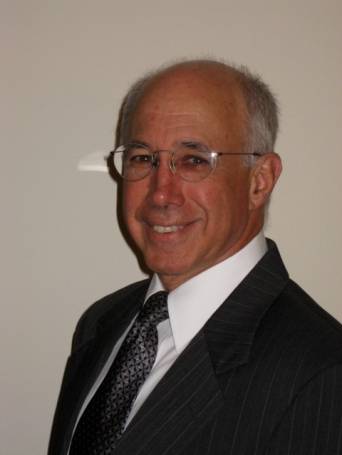Allen Zerkin
Adjunct Professor of Public Service

Allen J. Zerkin has been an Adjunct Professor of Public Service at NYU’s Robert F. Wagner School of Public Service since 1988, teaching courses on negotiation and conflict management. He also teaches, annually, a course on negotiation and conflict resolution at the graduate school of the American University of Paris and one on Environmental Conflict Resolution at the graduate school of Bocconi University in Milan, Italy. Since 1999, he has been conducting a popular one-day workshop on negotiation at the American Planning Association’s annual National Planning Conference. He is member of the New York Bar and earned his J.D. at Yale Law School.
Professor Zerkin specializes in the design and facilitation of processes intended to bring mutual understanding and collaboration and, often, resolution to public issues and controversies. These initiatives take many forms: Stakeholder consensus building processes on public policy issues, mediations of site specific disputes, roundtables fostering in-depth dialogue, meaningful public participation initiatives, extensive stakeholder interviews that lead to recommendations and final discussions, and facilitation of meetings and retreats. The following are illustrative:
Consensus building and mediation of high profile or controversial public policy issues
- Working under the auspices of the New York City Partnership and with funding from the Rockefeller Brothers Fund, Mr. Zerkin convened, designed and facilitated the Pocantico Roundtable on the Future of Brownfields in New York State, a thirty-member consensus building process that generated the innovative concepts – including Brownfields Opportunity Areas – that were the basis for the political breakthrough on state brownfields legislation; 1998-1999.
- Mr. Zerkin facilitated the 1999 New York State Roundtable for Consensus on Tire Management, the consensus recommendations from which became law in 2002-03 and have resulted in statewide tire recycling and the remediation of all of the state’s illegal scrap tire piles.
- Mr. Zerkin played a pivotal role in bringing about the resolution of New York City’s watershed controversy (1993-1995). He conceived of and, under the auspices of the Catskill Center for Conservation and Development, facilitated the Upstate-Downstate Water Quality Partnership, an unofficial back channel process for communication between NYC environmental and civic organizations from NYC, on the one hand, and organizations and prominent citizens from the Catskills region, on the other. Through this process, the participants developed a framework for the resolution of the issues and worked behind the scenes to influence the polarized viewpoints of City and upstate officials. Mr. Zerkin identified Congressman Sherwood Boehlert (R-NY) as the individual who could catalyze a new round of negotiations; Boehlert followed up and within days Gov. George Pataki announced that he was personally convening new negotiations under his personal auspices. The back channel process laid the groundwork for these negotiations, and the new talks produced a comprehensive landmark compact among federal, state, city and watershed town officials and environmental leaders for managing the watershed.
- In 2012-13, Mr. Zerkin teamed with mediators from The Mediation Group in Brookline, MA, to design and facilitate a group of 20 patients, primary care physicians, urologists, insurance and health systems leaders and senior executives from the Massachusetts Department of Public Health. The process produced a set of consensus recommendations regarding the use of PSA screening for prostate cancer. The recommendations are to be disseminated through leading Mass. medical organizations.
- In 2008, Mr. Zerkin co-designed and -led the Bernalillo County, NM, Public Safety Summit on Jail Population, a one-day process involving the mayor of Albuquerque, representative of the Bernalillo County Commission, the city’s chief administrative officer, the county manager, the chief judges of both the state District Court and the County Metropolitan Court and many other judges from each, the District Attorney, the Public Defender, the city Chief of Police, plus deputies of virtually all of them. The process succeeded in generating a fresh start toward working collaboratively to address severe jail overcrowding and numerous interagency dysfunctions. It identified specific “low-hanging” opportunities for collaboration and began reversing the escalating rancor among them and the viciousness of their public attacks on each other.
Designing and facilitating policy dialogues and public involvement opportunities
- Mr. Zerkin designed and facilitated the 2007 and 2002 Roundtables on the Prospects for Recycling in New York City, which brought national experts together with local civic and governmental leaders to think through how to a cost-effectively advance NYC’s recycling program; the 2002 Roundtable is widely credited with providing the Mayor and the City Council with the ideas that enabled them to resolve their political stand-off in 2002 and re-establish the city’s recycling program.
- Mr. Zerkin designed the NYS Department of Transportation’s public workshops on its 20-Year State Rail Plan in 2008. The design process enabled DOT staff to see that the Rail Plan’s many recommendations fit into three categories around which the workshop could be organized: Those recommendations they expected to be non-controversial; those for which further input was desired; and those they believed were right but might be controversial, for which they wanted to secure as much buy-in as possible. The innovative process was deemed by the DOT to have been highly successful.
- Mr. Zerkin designed the Metropolitan Transportation Authority’s (MTA) 2007 public workshop about proposed fare increases. He developed the workshop format and worked intensively with the staff to develop their presentations so that they would effectively and succinctly educate a non-professional audience about the MTA’s finances and the range of fare restructuring options.
Conducting stakeholder research
- For the Rudin Center for Transportation Policy and Management, under a contract with the New York Metropolitan Transportation Council, Mr. Zerkin interviewed representatives of the Council’s members (city and county governments and trans-jurisdictional transportation agencies) to flesh out the meaning of their adopted “Shared Goals”. He then developed a synthesis for their consensus adoption and facilitated a meeting of a members working group to develop a consensus set of objectives for the Shared Goals process. The recommended objectives were approved by the members’ principals and are now contained in NYMTC’s Unified Planning Work Program; 2008-10.